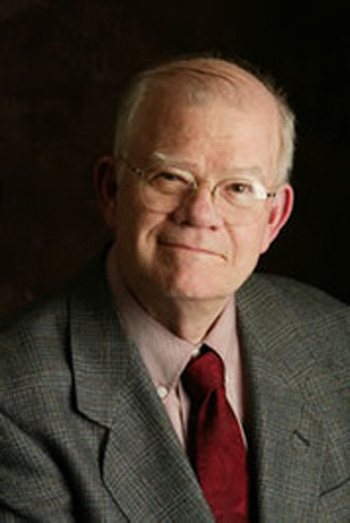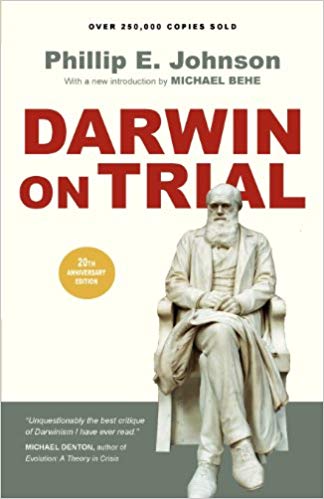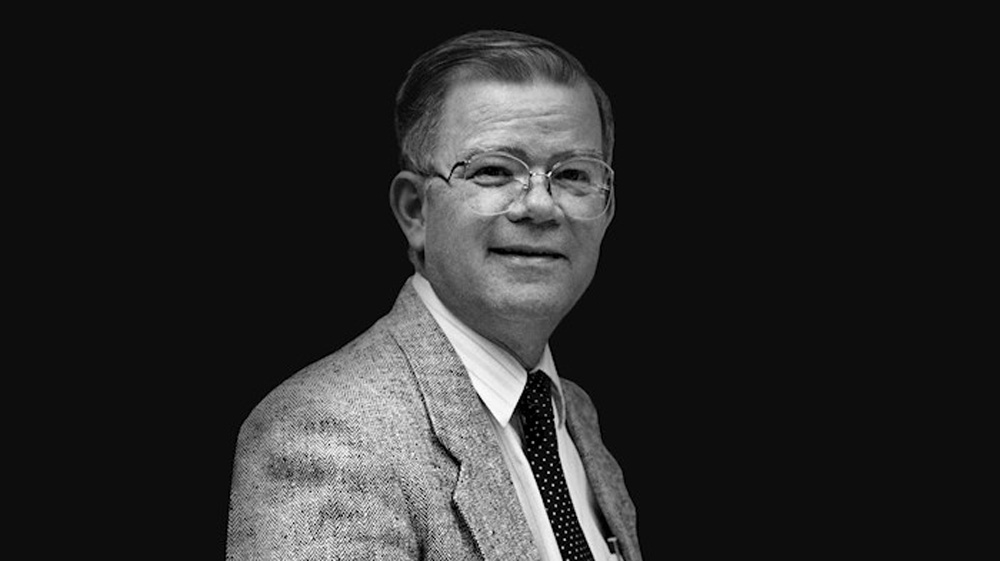By Mark Ellis –

Phillip Johnson, the Berkeley Law professor who challenged the scientific establishment’s views about naturalistic evolution and became the ‘Godfather’ of the intelligent design movement has passed to his reward. He was 79.
Johnson died peacefully at his home in Berkeley, California.
An extremely bright student, he graduated with a BA degree from Harvard, then was top of his class at the University of Chicago law school, later clerking for Chief Justice Earl Warren on the Supreme Court.
Johnson served as a law professor at Boalt Law School at UC Berkeley from 1967 to 2000.
Following a divorce in the late 70s, Johnson’s worldview dramatically changed when he was born again at the age of 38. He eventually became an elder in the Presbyterian Church USA.
Later, on a sabbatical in England he was thunderstruck after he read Michael Denton’s Evolution: A Theory in Crisis and Richard Dawkins’ The Blind Watchmaker.
While he had no training in biology, his incisive mind immediately cut through the assumptions, premises, and logic of the arguments employed, and decided he could use his formal training to add something to the debate.
 In 1991, he published the highly influential book, Darwin on Trial, which launched the basis of his so-called “Wedge Strategy”.
In 1991, he published the highly influential book, Darwin on Trial, which launched the basis of his so-called “Wedge Strategy”.
His idea behind the wedge was to use academic writing and scholarship to question the materialistic basis of science.
He told Rev. D. James Kennedy in 2007, “The first thing you understand is that the Darwinian theory isn’t true. It’s falsified by all of the evidence, and the logic is terrible.”
“The next question that occurs to you is, ‘Well, where might you get truth?’ … I start with John 1:1, ‘In the beginning was the Word.’ In the beginning was intelligence, purpose, and wisdom. The Bible had that right and the materialist scientists are deluding themselves.”
“The next question is: Why do so many brilliant, well-informed, intelligent people fool themselves for so long with such bad thinking and bad evidence?”
In 2001, Johnson suffered several right brain strokes that limited his ability to participate in the public debate about intelligent design.
Following the 9/11 attacks, he observed that professors at his campus were afraid to discuss it “because they’re afraid of what the Muslim students will do…I never thought our country would descend to this level. We are afraid to search the truth and to proclaim it. We once knew who the true God was and were able to proclaim it frankly. But since about 1960 we’ve been hiding from that. We’ve been trying to pretend that all religions are the same,” he told Christianity Today.
Johnson was also co-founder of the Discovery Institute’s Center for Science and Culture.

In confronting the scientific community, his approach was to remove religion from the discussion. “Get the Bible and the Book of Genesis out of the debate because you do not want to raise the so-called Bible-science dichotomy,” he told James Kushiner in 2002. “Phrase the argument in such a way that you can get it heard in the secular academy and in a way that tends to unify the religious dissenters.
“That means concentrating on, ‘Do you need a Creator to do the creating, or can nature do it on its own?’ and refusing to get sidetracked onto other issues, which people are always trying to do.”
He told Rev. Kennedy in 2007: “What I am not doing is bringing the Bible into the university and saying, ‘We should believe this.’ Bringing the Bible into question works very well when you are talking to a Bible-believing audience. But it is a disastrous thing to do when you are talking, as I am constantly, to a world of people for whom the fact that something is in the Bible is a reason for not believing it.”
Johnson wanted “to focus on the defects in their case—the bad logic, the bad science, the bad reasoning, and the bad evidence.”
Johnson changed the terms of the discussion in ways that were exciting, according to John Mark Reynolds. “Johnson was incisive and as a member of the intellectual elite was not intimidated by the normal establishment bluster,” he noted.
“Johnson is one of those rare individuals who is always the same person. He asks the same hard questions in Sunday school as he does in the Berkeley classroom. He has a unified personality. I have seen him in hundreds of different situations, and there is no split in his soul.”
He responded to his critics with gentleness and respect, as instructed by the Apostle Peter. “He is not a hater, not even of his enemies,” Reynolds noted before his passing. “This is why so many who disagreed with him can still respect him…He suffers fools gladly.”



